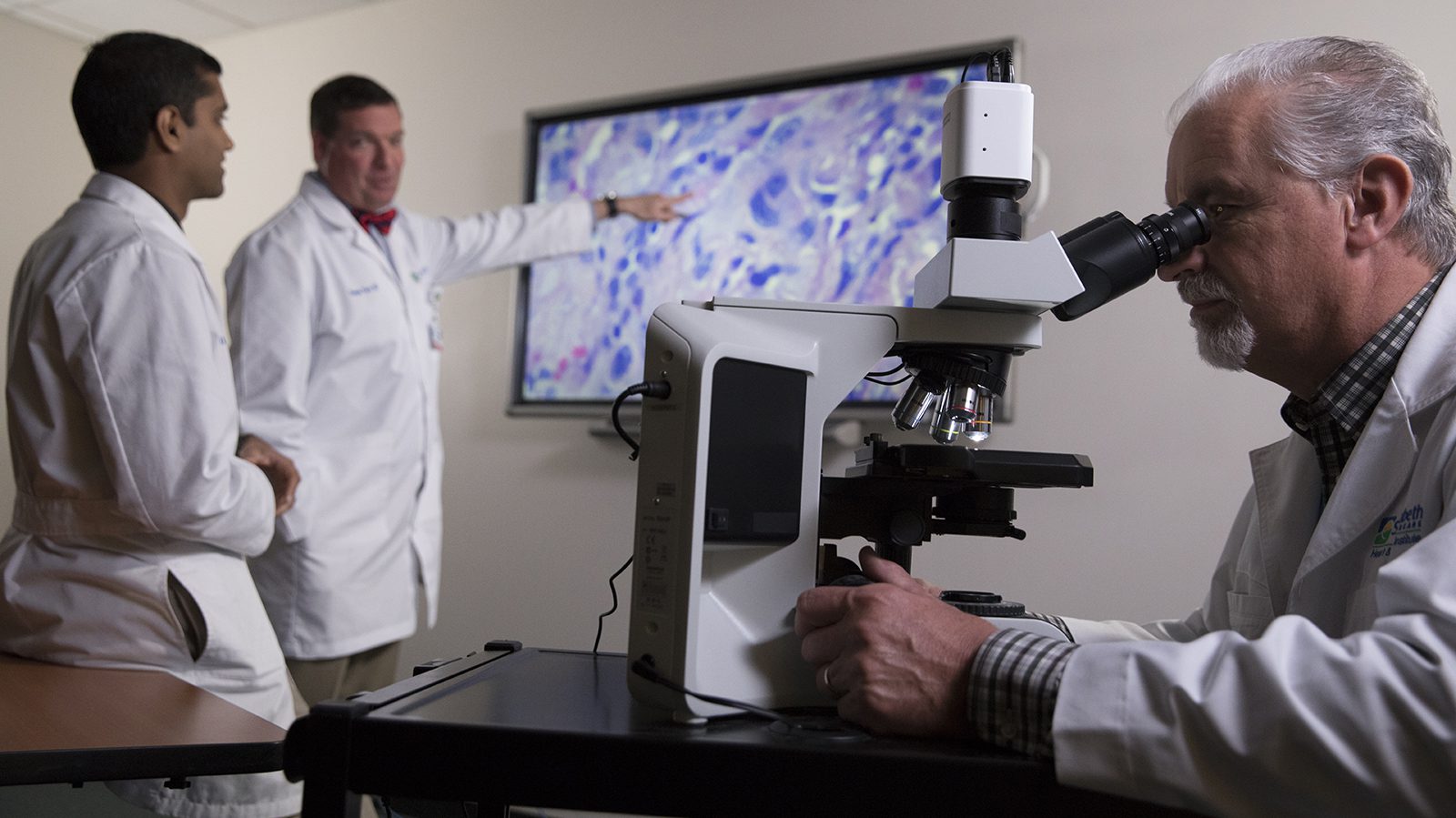Melanoma
Melanoma is a rare form of skin cancer that occurs when cancer cells form in melanocytes, which are the cells that give your skin its color. It is the most dangerous and deadly type of skin cancer.
Melanoma occurs in several ways:
Melanoma occurs in the body parts that have the most intense sun exposure. In men, you can find it in their trunk (the area between the shoulders down to the hips). In women, you can find it in their arms or legs.
Risks Factors for Melanoma
Your risk of developing melanoma goes up as you get older, but you can also develop it at a young age.
Your risk of melanoma increases if you have the following risk factors:
- Fair skin
- Blue or green eyes
- Red or blonde hair
- Multiple severe sunburns
- Excessive exposure to sunlight
- Family history of melanoma
- Tanning

Make an appointment
For more information, please contact your oncologist or the Cancer Care Center at (859) 301-4000.
Melanoma Symptoms
If you have a mole that changes color with irregular edges or a sore that bleeds or changes color, in addition to other Skin Cancer Symptoms, you could have signs of melanoma.
Use the ABCDE system to help you remember the symptoms of melanoma:
- Asymmetry (one half of the mole doesn’t match the other).
- Border irregularity.
- Color that is not uniform.
- Diameter greater than 6 mm (about the size of a pencil eraser).
- Evolving size, shape or color.
Diagnosing Melanoma
At St. Elizabeth Healthcare, we use the most advanced technology and evidence-based practices to diagnose melanoma.
Our Cancer Care Team gives you personal care that is focused on your unique needs.
Treating Melanoma
To beat melanoma, you will likely need surgery. During surgery, the surgeon will remove the cancerous portion of your skin and some of the surrounding area. The surgeon may also remove cancerous cells from your lymph nodes.
Recovering From Melanoma
Although it can be deadly, you can cure some melanomas if you catch them early. But if your cancer spreads to your lymph nodes, it can return after treatment. Once it spreads beyond the lymph nodes and nearby skin, it is difficult to cure successfully.
Your Cancer Care Team
The team includes medical oncologists specializing in immunotherapy and precision medicine, surgical oncologists, radiation oncologists, interventional radiologists, thoracic surgeons, pain management specialists, genetic counselors, pathologists, nutritionists, pharmacists, nurses and support staff. They work together to create a treatment plan that’s just right for you.


